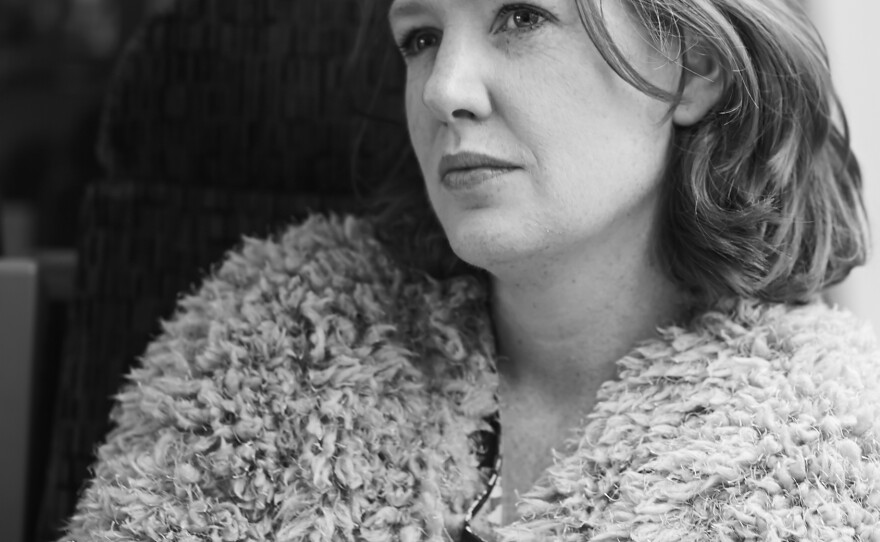If you have a long commute, you may have found yourself wondering about the familiar strangers you pass each day on the way to and from work — that woman on the bus who is always lost in thought, or that man in the second floor apartment.
That's the experience writer Paula Hawkins had during her journey to and from college in London. "It was a huge train, but it was over ground, and it went right past the backs of people's houses, and I could actually see right in," Hawkins tells NPR's Audie Cornish. They were houses with little terraces and colored lights strung outside, she remembers. "And I sort of used to imagine the lives of the people that lived there as being really bohemian and interesting. These were the sort of lives that I aspired to having."
Hawkins has spun those daydreams into a crime thriller called The Girl on the Train. It tells the story of Rachel Watson, a commuter who is obsessed with a "perfect" couple she sees from the train twice a day. Her ex-husband lives just a few houses away. When the wife of the couple goes missing, Rachel decides to get involved.
Interview Highlights

On Rachel's relationship with the woman in the house
Rachel has been watching these people from her train journey. She doesn't actually know the woman who's missing, but she feels like she's made a connection with her. She sees her all the time. And Rachel is also lonely and she's also an outsider, and she also believes that she knows a key piece of information which she thinks could unlock this whole mystery about the disappearance of this woman.
On the way Rachel sees the couple
She's projecting because she's lonely and unhappy and her marriage has ended recently. But she's also sort of idealizing what she used to have with her husband when she sees them. She looks at them and thinks, "That's what we were like. We were golden. We were perfect."
On why Rachel, who is an alcoholic, is an unreliable narrator
She's unreliable not just to other people, but to herself as well because she cannot trust her own memories and she cannot trust her own behavior. She will do stupid things and not remember it. So, yeah, she's on the extreme scale of unreliable.
On whether she has always read mysteries and thrillers
I have been on and off. I suppose what introduced me was Agatha Christie. When I was much, much younger, like a lot of people, I really got into Agatha Christie. But yes, I mean, I love the sort of psychological thriller genre. I love the atmosphere of suspicion and paranoia, people trying to figure out other people, perhaps in unusual circumstances, and not really knowing. I find all that Hitchcockian sort of atmosphere really fascinating.
On the writing she did previously under a pseudonym
That was women's fiction, I suppose. "Chick-lit," it's sometimes known as. So, much more lighthearted, not so much killing. ... I did enjoy writing them, but they kept getting darker and darker. And once I started writing this book I knew this was what I was supposed to be doing. It just felt completely right for me. This sounds awful, but I'm not, you know, a joyful, romantic person. Well I can be, but I've got a proper dark side and I enjoy indulging it. ... I wasn't that interested in the sort of romantic comedy side of things. I wanted to look at darker emotions and darker acts, and, you know, tragedy interests me more than comedy.
Copyright 2023 NPR. To see more, visit https://www.npr.org. 9(MDAzMjM2NDYzMDEyMzc1Njk5NjAxNzY3OQ001))





